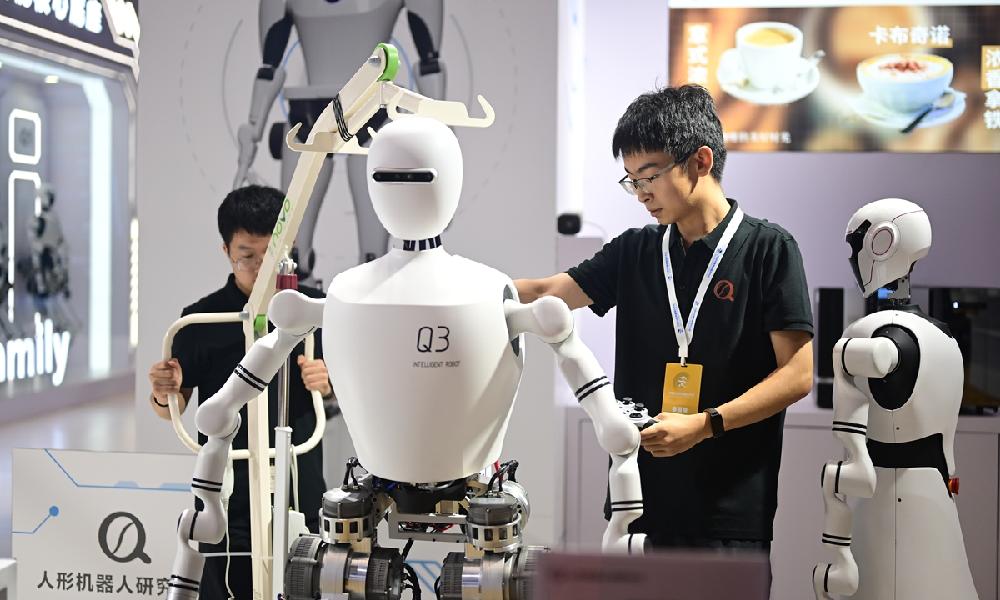
At the World Robot Conference 2024, which kicked off in Beijing on Wednesday, Chinese tech companies showed their newly developed humanoid robots, with participants from both China and abroad treated to a remarkable display of cutting-edge prowess.
Humanoid robots continued to take center stage during this year's conference, attracting visitors with walking, hurdling, and dance routines at the exhibition areas. Wherever the humanoid robots went, they were surrounded by large crowds taking photos and making videos.
Visitors said that they were deeply impressed by the rapid development of China's robotics sector, while noting that China continues to provide an open platform for industrial cooperation through the robot conference.
Shenzhen-based Leju Robotics brought its latest service humanoid robot, which can cook, make juice and sort items, as well as humanoid robots for industrial tasks such as moving heavy items.
Wang Song, a representative of the company, told the Global Times that Leju is working with Huawei, using its large Pangu artificial intelligence (AI) model to complete cooking, sorting and handling tasks. He said that the competitiveness of humanoid robots lies in the rapid development of large model task-planning capabilities.
Another Chinese robotics company called UBTECH showed its application of humanoid robots on car manufacturing lines. The robots, powered by AI, can complete quality testing and sorting and handling of parts.
"Now we have deployed our humanoids to the car manufacturing lines of Nio, Geely and the FAW Group's plant in Qingdao," said a representative of UBTECH.
Brad Nelson, professor of robotics and intelligent systems at ETH Zurich, told the Global Times that the conference brings together some of the most outstanding robotics researchers from around the world, giving them a chance to meet face-to-face in Beijing.
Nelson said he was impressed by China's manufacturing capability and supply chain, which are tough to duplicate, even in some developed countries.
Marina Bill, president of the International Federation of Robotics and head of marketing and sales at ABB Robotics, told the Global Times at the conference on Wednesday that as the world's largest manufacturing hub, China has deployed a large number of automated manufacturing processes. This trend has had a profound impact on the industry - in particular, its use and development direction.
As one of the earliest countries to introduce AI as a national development strategy, China has combined AI with robots and continuously evolved new application scenarios, she said, adding that AI will continue to bring new opportunities to the world and the robotics industry.
To foster new quality productive forces, China will establish a mechanism for ensuring funding increases for industries of the future; and the country will improve the policy and governance systems for promoting the development of strategic industries such as next-generation information technology, AI, aviation and aerospace, new energy, new materials, high-end equipment, biomedicine and quantum technology, and steer emerging industries toward sound and orderly development, according to a resolution adopted by the third plenary session of the 20th Communist Party of China Central Committee on further deepening reform comprehensively to advance Chinese modernization.
